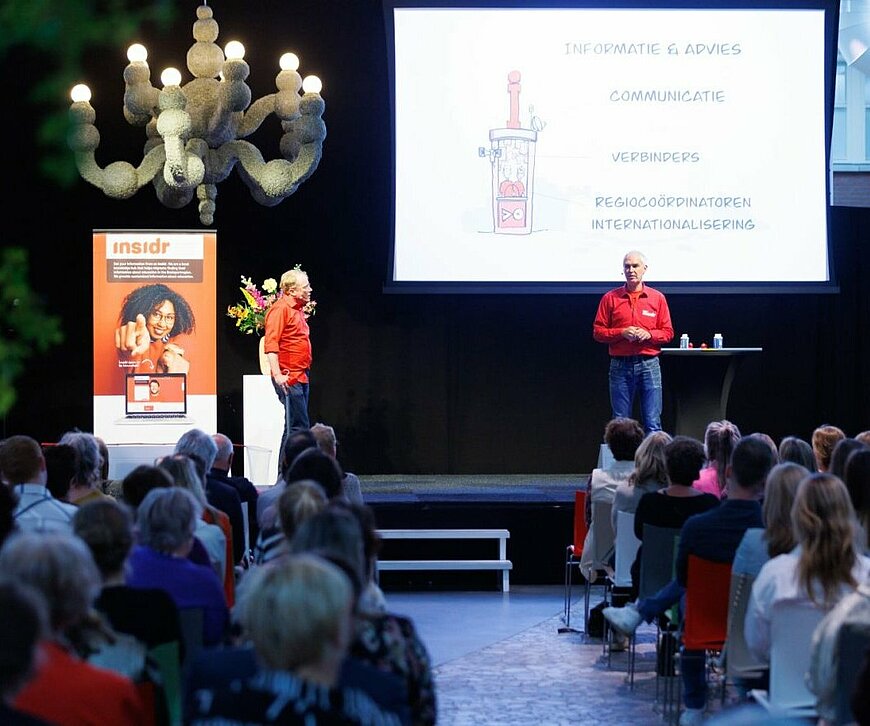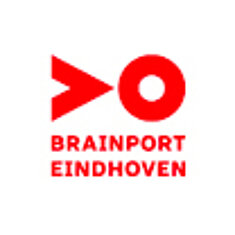Internationalization of education calls for collaboration

‘'There are already so many great initiatives to further shape the internationalization of education.'’
As more internationals settle in the Brainport region, schools are seeing an increase in the number of students with an international background. This brings benefits, but also challenges. Therefore, various initiatives and support options have already been set up in the region. To learn from each other and inspire one another, Brainport Development organized the meeting on Internationalization of Education.
It's Wednesday afternoon, April 17th, as the Brainport Human Campus in Helmond fills up with childcare and education professionals. A total of over 160 participants attend the inspiration meeting. "Everyone here wants all children to participate, including those with an international background," kicks off Hans Vasse, regional coordinator at Brainport Development. "That requires extra attention. But also know that as a school, you don't have to reinvent the wheel. There are already many support options in the region." Together with his colleague Dennis Witsiers, he mentions some examples, such as the new platform Insidr, which supports international parents with questions about education in the Brainport region. "I already sent the link to my colleagues," says Hedwig Altink, who works at the Prins Willem-Alexanderschool (special education) in Veldhoven shortly after. "The Dutch education system is different from that of many other countries, which raises questions."
Reducing Workload
What kind of questions do parents bring to Hedwig? "For example, I received an email this morning from an Indian man. He wants to move to the Brainport region and has a four-year-old son with autism. In India, these students receive a lot of therapy at school. How does that work in the Netherlands? And does our school match his support needs? Insidr can alleviate some of those questions, reducing workload for us." Helmond municipality councilor Cathalijne Dortmans also mentions workload in her presentation. "The influx of international talent is necessary because the labor shortage in the region is only increasing. But further internationalization leads to additional educational challenges, where the pressure is already high. That's why it's important to point out existing support options and to collaborate within the business community, schools, and governments."
Not Just Knowledge Workers
Cathalijne emphasizes that when many people think of internationals, they think of knowledge workers, but the group is broader. "Migrant workers, refugees, and international students also belong to that group, for example. There are significant differences among those residents." Hanneke van Rooij, director of child center De Vlier in Brouwhuis, Helmond, also sees this. "I was glad Cathalijne mentioned that. Those groups have different support needs and questions. We need to be aware of that." She is attending the meeting with her colleague Tanja Jonkers. "To get inspiration," says Tanja. "The group of non-Dutch-speaking children (and their parents) is growing in our school. We notice that they are often accustomed to very different education. Many parents, for example, don't understand that in the Netherlands, preschoolers learn through play, especially in cultures that are more performance-oriented. We are increasingly facing these differences."
Home Language in the Classroom
The two share their experiences just after the workshop 'from language immersion to a bath full of language'. Because besides some general presentations, visitors can also attend practical workshops this afternoon. Hanneke: "Ours was about how schools give students' home language a place. This makes them feel safe. At our school, we're already consciously doing this by offering books in various languages. But the workshop was a nice reminder." Tanja emphasizes the importance with an example: "Recently, in a lesson about different languages, I let a Turkish student speak in her mother tongue. Being able to speak briefly in her native language made her feel proud. She was 'at home' for a moment. That's so beautiful to see."
Inspiring Examples
Other workshops present more practical examples and original initiatives to support or stimulate internationalization. Think of teachers from the Eckart College encouraging international skills in all children (including those with Dutch backgrounds) through an augmented reality game. "That's also part of internationalization," says Leane van Veghel, project leader of internationalization in education at Brainport Development and organizer of the meeting. "This way, we're educating students to be global citizens. I hope the examples inspire. There are already so many great initiatives. Seek connection, with Brainport Development and with each other. So that we can collectively further shape the internationalization of education."
The inspiration meeting on Internationalization of Education was made possible in part by a contribution from the Brainport Eindhoven Regional Deal.
